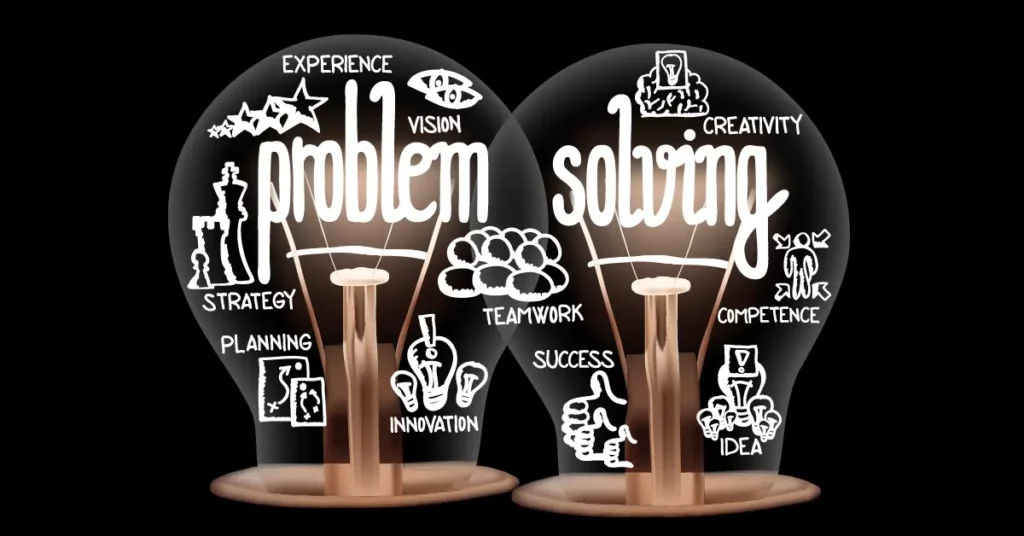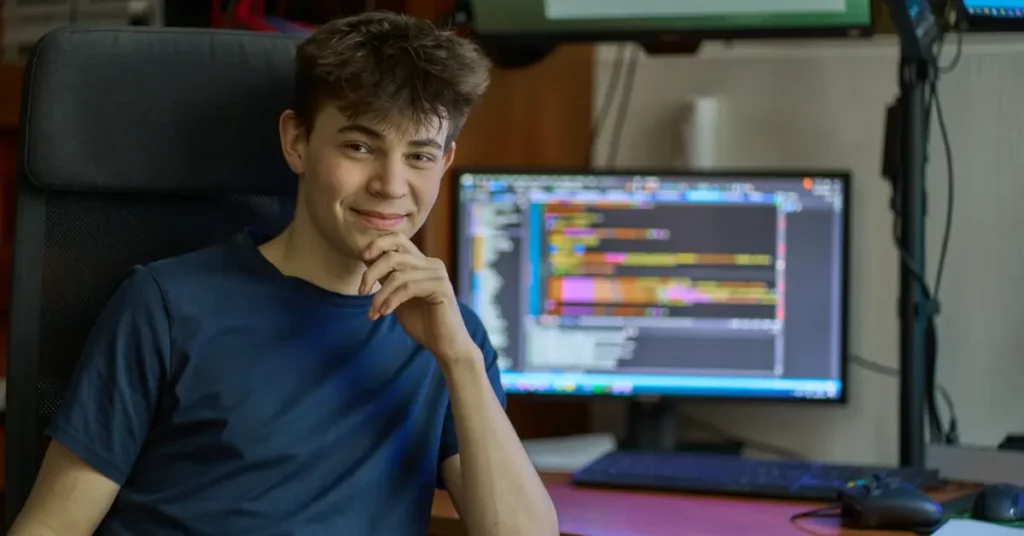
Update: This article was last updated on 12th November 2024 to reflect the accuracy and up-to-date information on the page.
Coding, a skill set in high demand, is not just about jobs and salaries. It’s an exciting journey of problem-solving and creativity. And for kids, it’s a world of endless possibilities. So, should kids learn coding? The answer is a resounding yes, and here’s why!
While coding is an important skill to learn, it is not sufficient on its own for several reasons.
First, coding is just one aspect of computer science. There are many other important concepts and skills that children should learn, such as algorithms, problem-solving, and critical thinking.
Second, learning to code is not just about understanding the technical aspects of programming but also about using logic, creativity, and collaboration to solve problems.
Finally, coding is not just a standalone subject but is also closely connected to other subjects such as math, science, and even art and music. For instance, in math, coding can be used to create simulations for complex mathematical concepts. In science, coding can be used to analyze and visualize data. In art and music, coding can be used to create digital art or compose music. As such, children who want to excel in computer science should not just focus on coding but also broaden their knowledge and skills in these related areas.
Many people believe that learning coding skills is the key to success in the 21st century. While coding is a valuable skill, it alone is not sufficient to guarantee success. According to OnePoll, 73% of American parents say they would rather their child learn coding skills than learn a foreign language.
Let’s take a look at why coding is important and why other skills are also necessary.
1. Coding develops problem-solving skills

Coding requires kids to think through problems logically to find a solution. This process helps them develop important problem-solving skills they can use in all areas of life, from figuring out a complex math problem to solving a real-world issue.
2. Coding fosters creativity

While coding may not seem like a creative activity at first glance, it actually is! Coding allows kids to be creative in solving problems and creating solutions, as well as in designing their programs and applications.
3. Coding builds confidence

Mastering coding skills can give kids a real confidence boost. It’s not just about seeing their code running, but about the satisfaction of solving a problem and creating something unique. This sense of accomplishment can transfer into other areas of their life, making them more confident in themselves overall.
This sense of accomplishment can transfer into other areas of their life, making them more confident in themselves overall.
4. Coding teaches patience and persistence
Coding classes for kids can sometimes be frustrating, especially when things don’t work out as expected. This is where patience and persistence come into play. By sticking with coding challenges, kids not only improve their programming skills but also learn valuable life lessons about resilience and problem-solving.
Real-World Applications of Coding: Connecting Kids’ Learning to the World Around Them
Coding is more than just writing lines of code—it powers many aspects of the modern world. When kids learn coding, they’re not only building skills for future job markets; they’re also developing the tools to understand and interact with the world around them in new ways. Here are a few real-world applications that make coding both exciting and relevant:
Creating Games and Simulations
Kids love games, and learning to code enables them to understand how games are made, from animations to interactive design. By creating their games, they apply logical thinking, creativity, and problem-solving in a way that’s both fun and educational.
Robotics and Automation
Coding is the backbone of robotics, an area rapidly shaping the future. From designing simple robots to programming advanced ones, coding allows kids to bring robotics to life. This connection between code and physical movement sparks excitement and teaches them about automation, an essential field in various industries.
Developing Apps to Solve Problems
Coding empowers kids to think like problem-solvers. When they understand coding, they can create apps that address real-life challenges, such as apps to help organize schoolwork or remind them of daily tasks. This practical application of coding skills makes the learning experience relevant and builds a mindset for innovation.
Art and Music Generation
Coding isn’t limited to technical applications; it’s increasingly used in creative fields like digital art and music. Kids can use code to design animations, generate digital artwork, or even compose simple music. This shows them how coding intersects with art and creativity, broadening their perception of what coding can do.
Data Science and Environmental Impact
Understanding how to work with data is an essential skill today. Coding provides the foundation for data science, which allows kids to collect, analyze, and interpret data. Kids can create projects that explore topics they care about, like tracking their environmental impact or visualizing data on climate change, making coding both impactful and meaningful.
Conclusion
So, what does this all mean? While coding is a valuable skill, there are other skills one needs to be successful in the 21st century. Skills such as problem-solving, creative thinking, and teamwork are also essential. It’s important to remember that a balanced skill set, including coding and these other skills, can help children succeed in life.
So, if you’re interested in learning how to code, go for it! But don’t forget about all of the other amazing skills out there that can help you succeed in life.
Want to make your child future-ready with Robotics? Moonpreneur offers a tailor-made program. Reserve a spot in our free 60-minute workshop today and introduce them to the amazing world of robotics and innovations!
























